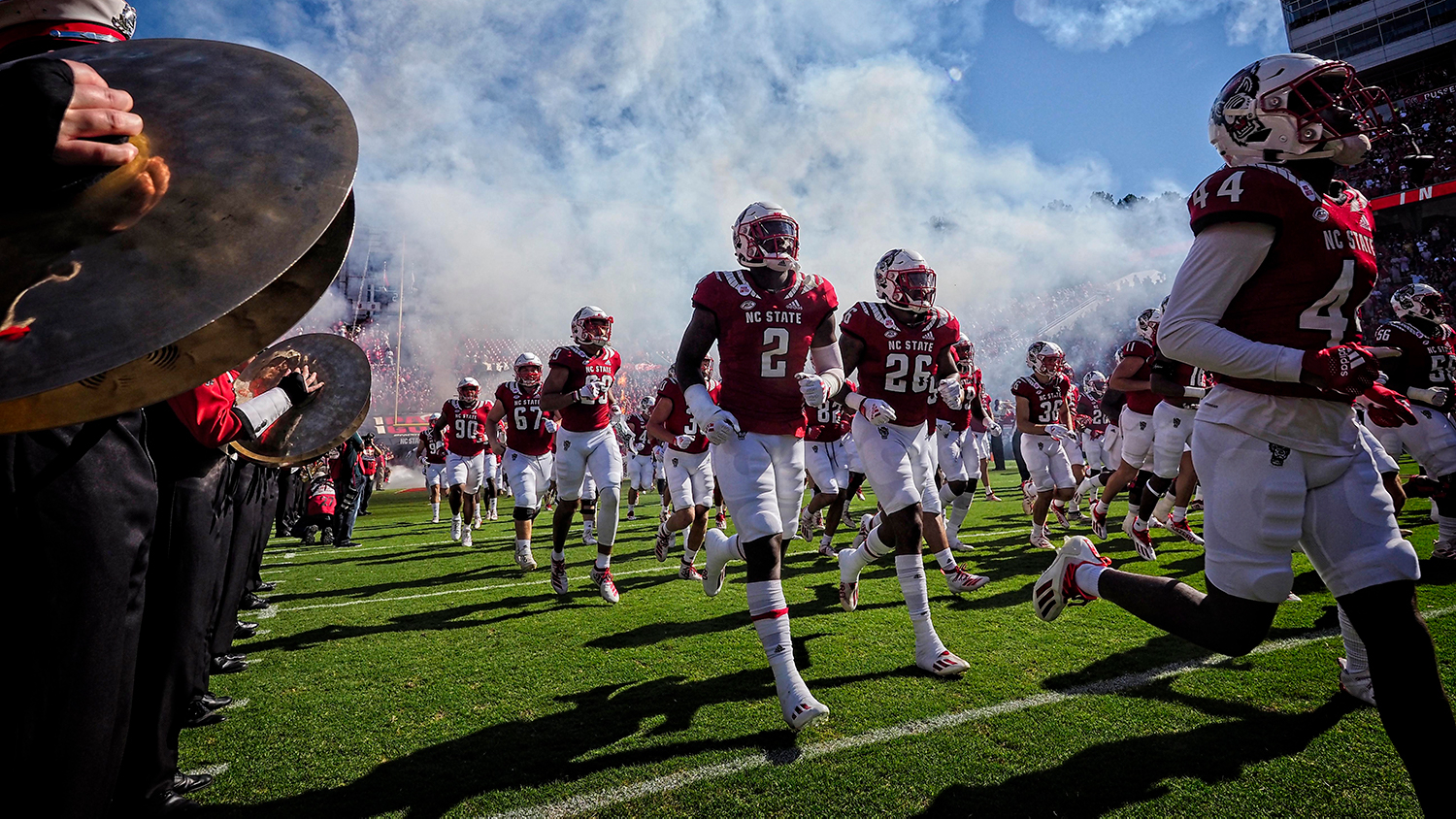Expert: College Athletics Offer Platform for Promoting Sustainable Behavior

College athletic programs are vital in the world of higher education, bringing in billions of dollars each year and improving the name recognition and institutional prominence of schools across the country.
But these programs can do much more than generate revenue and improve the reputations of schools. They can also serve as useful tools for environmental protection, according to one NC State expert.
“The value of sport has never been higher when it comes to sustainability,” said Jonathan Casper, an associate professor of parks, recreation and tourism management at the College of Natural Resources.
Casper, whose research focuses on the relationship between sport and the environment, recently led a virtual workshop on how higher education institutions are leveraging sport to promote sustainable behavior.
The workshop was hosted by the ACC Sports Sustainability Team, a group of sustainability professionals, collegiate athletic departments and student-athletes within the Atlantic Coast Conference.
During the workshop, Casper discussed the emergence of sustainability as a social priority, noting that Americans are increasingly accepting and adopting practices aimed at protecting the environment.
“We as a society are beginning to change our attitudes and norms related to sustainability in a good way,” Casper said. “People are becoming a lot more aware of sustainability as a whole.”
Research shows that younger Americans – Millennials and adults in Generation Z – display more sustainably-oriented behavior and are inspiring other age groups to act more sustainably.
Higher education is leading the way in facilitating this social shift, according to Casper. In fact, many universities are establishing departments to promote sustainability among faculty, staff and students.
Now, with public awareness of sustainability growing, universities are uniquely positioned to promote it at a much larger scale than other institutions thanks to the reach of their athletic programs.
Sport is widely acknowledged as an important platform for sustainability and is used by organizations around the world, both professional and collegiate, to reduce their environmental footprint.
In 2015, for example, NC State launched Zero Waste Wolfpack to engage fans and volunteers in recycling at football games. It’s also since added solar panels at Carter-Finley Stadium.
“Within college sports, we know there is this environmental impact,” Casper said. “We have large-scale facilities and events that we manage, team travel and fan travel. These all impact the environment.”
Casper said college athletic programs and other sports organizations can utilize fandom to prompt broader societal change: “There’s a trust that comes with a sport organization. It can be a very valuable thing.”
A recent study co-authored by Casper highlighted this level of trust among fans, finding that many relied on professional sport organizations for COVID-19 information instead of government health agencies.
“They [fans] were looking to the sport organizations for advice on health and health policies,” Casper said.
While sustainability is sometimes polarized among fans due to their political differences, Casper said sport organizations can utilize the demonstration effect as a method of establishing new social norms.
The demonstration effect is a term used to describe a social phenomena in which people observe and copy the behaviors of others, according to Casper.
As an example, Casper pointed to NC State’s Zero Waste Wolfpack program, noting that fans are likely to become more responsive to sustainable behaviors if they see other fans recycling.
“When people see something, they’re more likely to do it,” Casper said. “So when they see other fans doing something, they think there’s this norm because of it.”
Professional sport organizations are also adopting and promoting sustainable practices, but collegiate sports are more likely to reach a larger audience due to the number of events offered and the diversity of fans, according to Casper.
Many universities compete in more than a dozen sports, from football and basketball to cross country and wrestling. These competitions not only attract students, faculty and staff but also off-campus supporters.
“Compared to other sport levels, such as professional sports, we also have community members … fans and alumni who attend and watch sporting competitions,” Casper said.
Ultimately, Casper said higher education institutions should work to infuse sustainability into their athletic programs because it can add social and economic value to their brands and operations.
“We undersell the value of sustainability a lot of the time,” Casper said. “By being great in sustainability, we add value to what we do.”
- Categories: